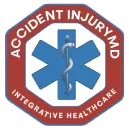Are You A Federal Employee With A Job-Related Injury?

If you work for the federal government, getting injured on the job may be the last thing on your mind. You might even think that it will never happen to you. We certainly hope that you never get hurt on the job. Unfortunately, too many federal workers are injured every year, and too few of them see a doctor who actually knows what he or she is doing when it comes to treating a Federal Worker's Compensation injury.
Our team of doctors is experienced in handling the treatments and the documentation required to ensure that you receive the best care possible. Our medical team customizes your unique plan to treat your condition and address your symptoms. Choosing a doctor that understands the DOL/OWCP requirements is key to getting your claim processed and you on the road to recovery.
Treating Injured Federal Employees
- Postal Employees (USPS)
- TSA Employees
- Veterans Affairs (VA)
- Dept. of Defense (DOD)
- Homeland Security (DHS)
- Immigration & Customs (ICE)
- Federal Bureau of Prisons (BOP)
- Border Protection Agency
- Social Security Admin (SSA)
- Internal Revenue Service (IRS)
- And all AFGE members

Traumatic Injury Treatment
A traumatic injury (TI) is defined as:
A wound or other condition of the body caused by a specific event or series of events or incidents within a single workday or work shift. A traumatic injury is identifiable as to the time and place of occurrence and the member or function of the body affected.
Examples:
- dog bite
- knee strain after a trip and fall
- neck strain after an auto accident
- broken ankle after a slip-on ice
Form CA-1 (Notice of Traumatic Injury) should be completed by the injured employee and an agency supervisor or injury compensation specialist.
Basic Occupational Disease Treatment
An occupational disease (OD) is defined as:
A condition produced in the work environment over a period longer than one workday or shift. It may result from systemic infection, repeated stress or strain or work environment conditions.
Examples:
- A claim for carpal tunnel syndrome from a postal letter-sorting machine operator where medical tests establish the diagnosis
- Tendonitis of the shoulder, which developed from the duties of a Transportation Security Administration worker from lifting heavy luggage over several days/months
The injured employee and an agency supervisor or injury compensation specialist should complete Form CA-2 (Notice of Occupational Disease).
Recurrence of Injury Treatment
There are two types of recurrences:
Recurrence of medical condition:
- Need for additional treatment after release from treatment.
Recurrence of disability:
- Inability to work after returning to work, caused by a spontaneous change in medical condition without an intervening injury or new exposure
Form CA-2a' Notice of Recurrence' should be completed by the injured employee and an agency supervisor or injury compensation specialist.
Consequential Injury Treatment
Occurs because of weakness or impairment caused by a work-related injury, and it may affect the same part of the body as the original injury or a different area altogether.
For example:
A claimant with an accepted knee injury may limp for a number of years. The limping cause internal derangement in the other knee, constituting a consequential injury.
Impairment Rating Referrals
Our goal with every patient is to ensure you get the individualized treatment that you need to get well and return to work safely.
Unfortunately, sometimes even with the best treatment, there could be a diminishment or permanent loss of function or ability of that particular injured body part. This is known as a permanent impairment which is reached after your doctor determines that you have reached Maximum Medical Improvement.
This means that your injury is no longer expected to improve, even with additional medical treatment. Our providers will determine if your injuries have reached maximum medical improvement and if there is any further need for an impairment rating referral to a specialist.
Specialist Referrals
We work collaboratively with other specialists, including:
- Orthopedic
- Physiatrist
- Neurologist
- Neurosurgeon
- Pain management specialist
When the physician originally selected to provide treatment for a work-related injury refers the claimant to a specialist for further medical care, the employee need not consult OWCP for approval.
